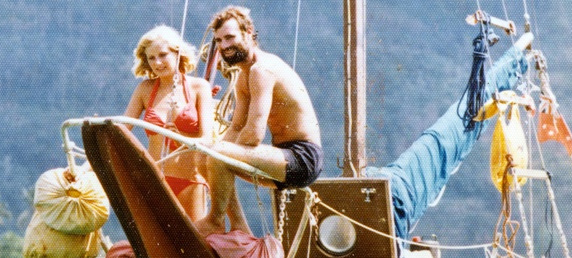Q&A With Director Annie Goldson – ‘Brother Number One’
With rave reviews from Flicks, critics and users alike (read them here), Annie Goldson’s documentary Brother Number One follows Kiwi Olympian rower Rob Hamill as he goes to Cambodia to retrace the events that saw his brother, Kerry, caught, tortured and murdered by the Khmer Rouge in 1978. Brother Number One is now playing at selected […]

With rave reviews from Flicks, critics and users alike (read them here), Annie Goldson’s documentary Brother Number One follows Kiwi Olympian rower Rob Hamill as he goes to Cambodia to retrace the events that saw his brother, Kerry, caught, tortured and murdered by the Khmer Rouge in 1978. Brother Number One is now playing at selected cinemas and we put a few questions to Annie, who won ‘Best Director, Documentary’ at the Aotearoa Film & Television Awards. (click here for more information and session times).
FLICKS: Hello from Flicks, how are you today?
ANNIE GOLDSON: Would like a cup of tea and a lie down but doesn’t look likely. But I’m fine, basically.
What should people expect from Brother Number One?
I conceived the film as a series of journeys, Kerry Hamill’s fatal “hippie adventure” of his yacht, Rob’s journey to the Cambodian court seeking justice and to confront his brother’s killer, the journey of Cambodia and the Cambodians we met as they struggle with the devestating impact of the Khmer Rouge period, and I suppose the more abstract journeys – a journey towards forgiveness, closure and reconcilation?
These journeys are about our world, as well as the Cambodian experience, as our country, one way or another, is inevitably involved in the geopolitics that produce monsters like the Khmer Rouge.
So I guess audiences should expect a crisscrossing of journeys. I liked what Graeme Tuckett said, though, the film is not depressing but full of compassion and history. “Just go see it”, he said.
Could you share your strongest memory from filming.
There was so much, it is hard to say. But I was particularly moved by the story Norng Chanphal who was taken to the prison centre Tuol Sleng with his Mum and younger brother when he was eight. His father had been taken there and killed but the family had thought this might be a reunion. Norng Chanphal remembers seeing his mother at the window of a room looking down at the two boys and crying – then he never saw her again.
This was just before the Vietnamese entered Cambodia, kicking out the Khmer Rouge or at least forcing them to retreat to the North. During the chaos, Norng grabbed his brothers and some babies and hid them in a pile of old clothes. The few living prisoners were killed as the KR retreated. Norng Chanphal wandered through the deserted prison calling to his mother, and saw dead bodies chained to beds.
Then, as an eight year old, he fed the babies with water from a teaspoon as he knew they couldn’t eat solids – when the Vietnamese came into Tuol Sleng, they had a camera so there is footage of this dear brave boy, now a man of 40-ish and living a life of relative poverty.
What was the last great film you saw?
Well I want to see We Need To Talk About Kevin as I loved the book and love Tilda. Actually on the plane back from Adalaide last week I watched Winterbottom’s The Trip, which I found both hilarious and poignant. I couldn’t make head nor tail of Tinker Tailor, and the plane touched down before I’d gotten into The Descendants. Such is contemporary travel, certainly movies have improved those interminable trips.
If you could interview any subject, living or dead, who would it be?
Should I say Nelson Mandela or Sir Edmond Hillary? Or Martin Luther King? Te Rua?
What’s the best bit of advice you’ve ever been given?
I’m not sure about advice either, I think one should follow one’s own beliefs and instincts in a complex world. Being kind seems important to me.























